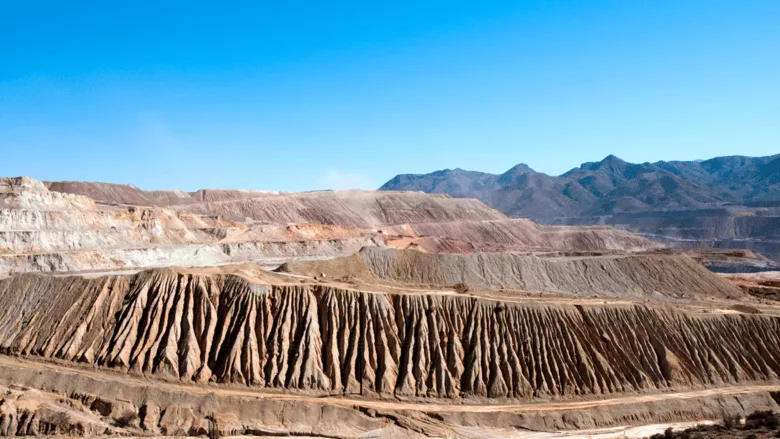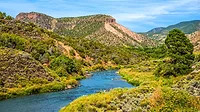Supreme Court Denies Apache Appeal Regarding New Mine
The decision paves the way for a copper mine at Sacred Oak Flat

Image via BWB Images from Getty Images Signature
In a deeply consequential decision on Tuesday, the U.S. Supreme Court rejected an appeal by Apache Stronghold, allowing a long-disputed copper mining project to advance on federal land in Arizona considered sacred by the San Carlos Apache and other tribes. The decision leaves in place lower court rulings that permit the transfer of Oak Flat—an ancient ceremonial site in the Tonto National Forest—to mining giant Resolution Copper, a joint venture between Rio Tinto and BHP.
The ruling arrives amid mounting national scrutiny over the balance between religious liberty and commercial interests, especially when Indigenous rights are at stake. Oak Flat, or Chi’chil Biłdagoteel in the Apache language, has been used for centuries for vital spiritual ceremonies including the Sunrise Ceremony for girls and sweat lodge rituals for boys.
Apache Stronghold argued that the transfer would destroy a place central to Apache religion, amounting to a violation of their First Amendment rights and the Religious Freedom Restoration Act. Their plea was rejected without explanation. However, Justices Neil Gorsuch and Clarence Thomas dissented, with Gorsuch calling the Court’s refusal to hear the case a “grievous mistake.”
“Just imagine if the government sought to demolish a historic cathedral on so questionable a chain of legal reasoning,” Gorsuch wrote. “I have no doubt that we would find that case worth our time... Faced with the government's plan to destroy an ancient site of tribal worship, we owe the Apaches no less.”
Justice Samuel Alito did not participate in the case, likely due to his reported ownership of BHP stock, which could pose a conflict of interest.
Resolution Copper, which says the site holds the second-largest known copper deposit in the world, has said the project could meet 25% of U.S. copper demand and generate $1 billion annually for Arizona’s economy, while creating thousands of jobs in the region. Victoria Peacey, general manager of the project, responded to criticism by stating that “extensive consultation” with tribes had already led to “significant changes” and that “ongoing dialogue will continue to shape the project.”
But tribal leaders are unconvinced. Wendsler Nosie Sr., a former chairman of the San Carlos Apache Tribe and a spokesperson for Apache Stronghold, expressed disappointment in a written statement:
“While this decision is a heavy blow, our struggle is far from over. We urge Congress to take decisive action to stop this injustice while we press forward in the courts.”
Nosie later reaffirmed the group’s long-term commitment to protecting Oak Flat, declaring, “We will never stop fighting — nothing will deter us from protecting Oak Flat from destruction.”
The Forest Service previously issued an environmental impact statement in the final days of the Trump administration that would allow the transfer to proceed. The Biden administration paused the process in early 2021 for further tribal consultation, but the Ninth Circuit Court of Appeals ultimately ruled 6–5 in favor of the mining companies. That split decision upheld the claim that the land transfer does not “substantially burden” the ability of tribal members to practice their religion.
Environmental assessments show that if mining proceeds, the land would subside into a crater nearly two miles wide, destroying traditional ceremonial areas, natural groves, and rare plants used in spiritual practice. Apache Stronghold also argues that the project violates an 1852 treaty in which the U.S. government pledged to protect the Apache’s territory and well-being—a claim that the Supreme Court did not address in this case.
Despite this week’s defeat, Apache Stronghold and its allies—including major Christian denominations like the Presbyterian and Episcopal Churches, as well as legal advocacy groups that typically represent conservative Christian interests—have vowed to continue the legal battle.
With the Forest Service now expected to reissue the environmental review in mid-June, the land transfer—and the mine—could soon move forward unless halted by congressional action or new litigation.
Looking for a reprint of this article?
From high-res PDFs to custom plaques, order your copy today!





